Hannah Reid AKA ‘Ginger Grows’ On The Träkol Kitchen Garden Project And New Initiatives
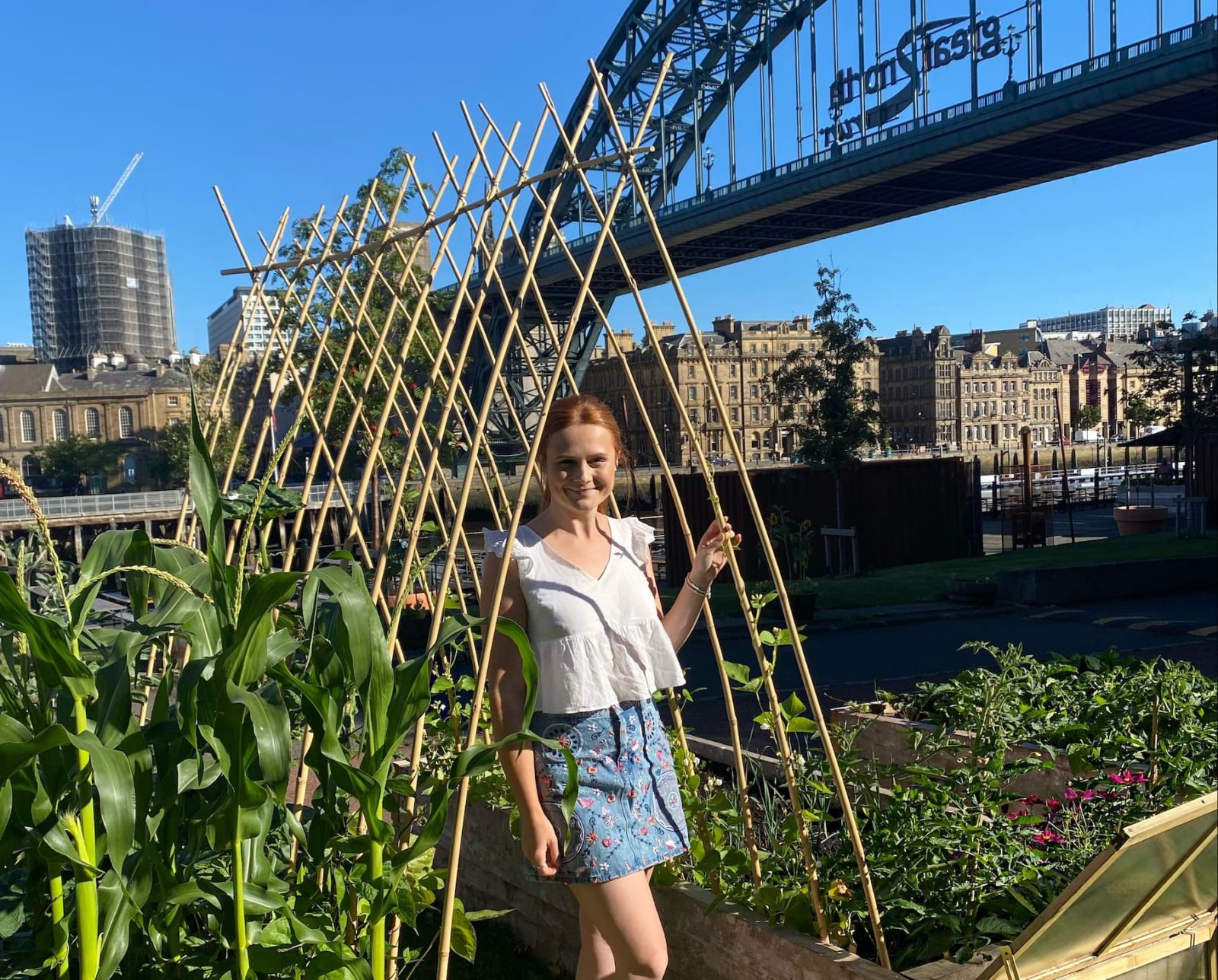
Hannah Reid, better known online as @gingergrows1, is an Organic Gardener and Garden Writer who runs her own allotment in the North of England.
She is currently working as the Head Gardener at Träkol Restaurant, where she grows and provides edible crops for use in the kitchen, and has her first solo RHS project coming up at RHS Hampton Court Palace in July.
I was lucky enough to speak to Hannah to find out more about her and her love for gardening.
How Did You First Get Into Gardening?
“I have been gardening since I was young,” says Hannah. “My Mam and Auntie really loved their gardens and started taking me to garden centres as soon as I was old enough to walk! I always helped in the garden by planting bedding plants and watering the beds.

“My own interest really started with houseplants when I moved into my own home. I then experimented with growing herbs and vegetables indoors (in a third-story flat!). I grew tomato plants and cucumbers in my kitchen but quickly realised I needed more room, so I applied for an allotment.
I was lucky and got a plot straight away. I’ve had my allotment for 5 seasons. Last year, my hobby became my full-time job, and I started growing on a commercial scale for a restaurant on the Quayside – Träkol.
“I grow produce and micro greens on-site for them.”
Can You Tell Me More About The Träkol Kitchen Garden Project?
“The Träkol Kitchen garden has been in development over the last few years,” she shares. “I joined the team over a year ago now as Head Gardener, growing produce and microgreens on-site for the kitchen.
“The aim is for a near-zero waste, nose-to-tail, closed-loop food system with sustainable practices. We have 13 raised beds, a greenhouse and a grow room upstairs with lights for microgreens.
“The produce has increased in volume year on year. I work closely with the chefs onsite and grow seasonally for the changing menu we have.”
What Drives Your Passion For Gardening?
“I love knowing exactly where my food has come from. I grow without the use of chemicals, which I think is important, as I leave no negative impact on the environment or animals.
“I like knowing what I’m eating is completely organic and fresh, with zero food miles, too.
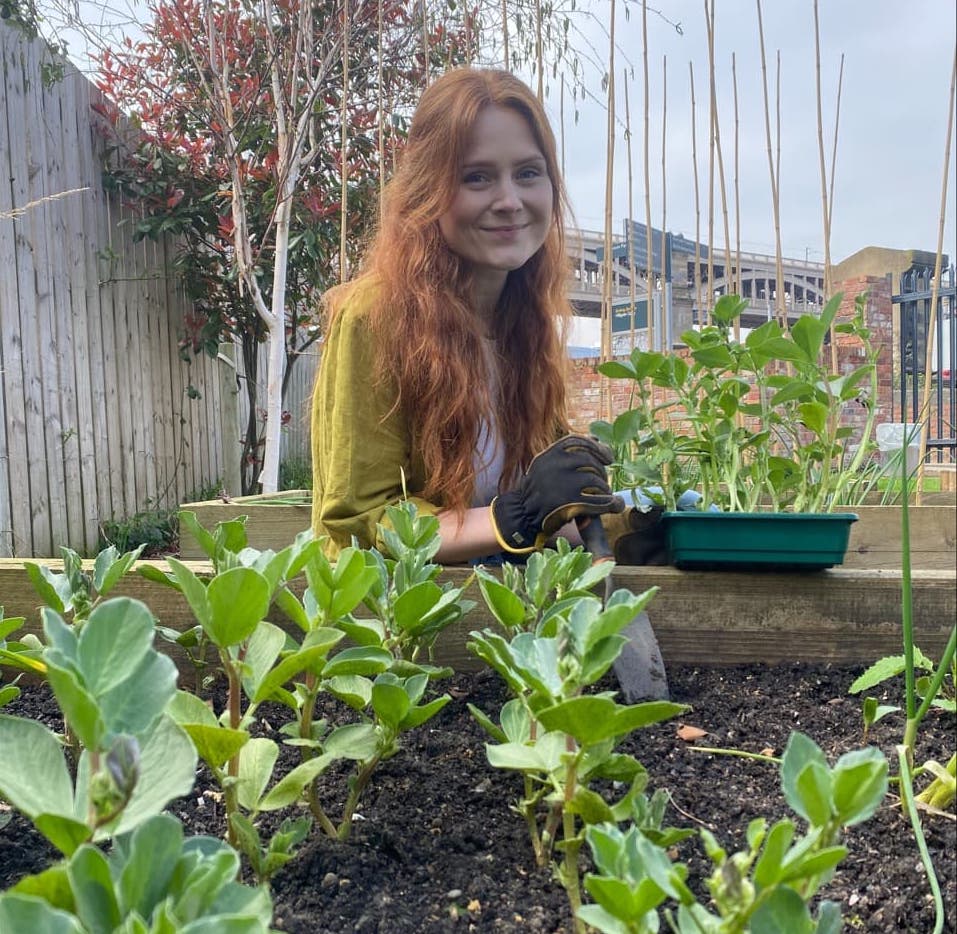
“I also find that gardening helps me to relax. When I’m potting on or concentrating on pricking out tiny little seedlings, it’s the only thing I can think about.
“My mind switches off from everything else and, when life is usually so busy and hectic, I love this!”
How Important Is Organic Gardening To You?
“Organic gardening is all I have known, as it is all I have ever done,” explains Hannah. “When I first started gardening, I knew I had no intentions of using chemicals or fertilisers.
“I think even just growing your own food is a massive way to help the climate.
“Transporting food around the world means a lot of miles, so by growing your own, you are helping to reduce the fossil fuels burnt from importing foods from other countries.
“Unfortunately, eating seasonally does also mean no strawberries in November!”
What Have You Learnt From Documenting So Much Of Your Horticulture Journey Online?
“There is such a wonderful group online. Gardeners are willing to give information so freely and share some of their plants and harvests, too.
“I started my own Instagram as a form of a journal, a log to look back on. I had no idea that the community of gardeners online was so huge!
“I have met some lovely people over the years, some of whom I have connected with online from the beginning and eventually met in person at gardening events or shows.
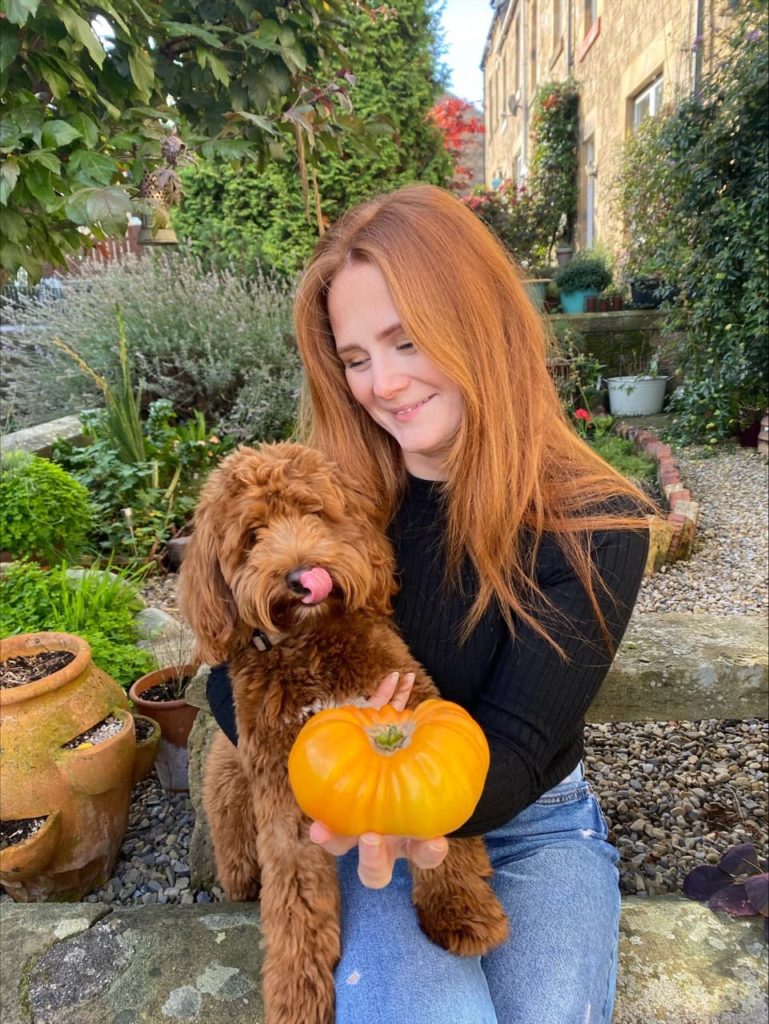
“I have had conversations with people from all over the country and the world, which provides an insight into life and gardening I likely would never have gotten without the internet.
“There are so many innovative ideas online that people have tried, such as using plastic bottles or milk cartons to grow seedlings in or making tool storage and planters out of upcycled pallets.
“There is so much information right at my fingertips and I am so appreciative of that.”
What’s Next For You And Ginger Grows?
“I will be exhibiting a community allotment garden at RHS Hampton Court Palace garden festival in July, which I am so excited and nervous about as it is approaching quickly!
“The majority of the plants have been grown from seed here in Newcastle, in partnership with Ouseburn Farm, a charity which provides a space for adults with additional needs to grow their own food and care for animals.
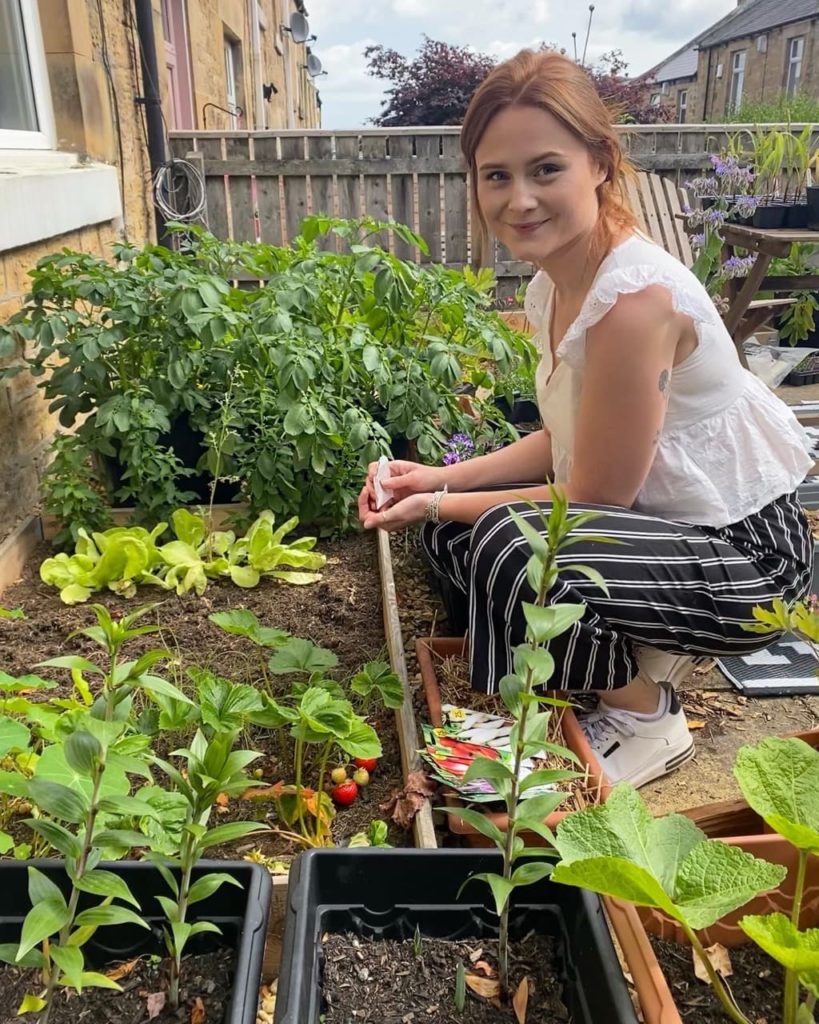
“This is the first year I’ve done an RHS show myself. It’s been a whirlwind since I found out I was accepted in February, but I have loved every minute so far.
“I’m also planning on getting a Youtube channel up and running with regular videos and longer content. I have started recording the videos already in the run-up to the show.”
What Advice Would You Give To Those Who Are Thinking About Getting Into Gardening Or Starting An Allotment?
“Just go for it! Buy a packet of seeds and give it a try.
“I think people would be surprised how much you can grow even with limited space. No matter what size your garden, allotment, balcony or even windowsill is, there will be plants you can grow.
“My main piece of advice is to spend some time just watching. Watch the way the sun moves across your garden or allotment, see which areas are in shade at what times of day and then plan accordingly.
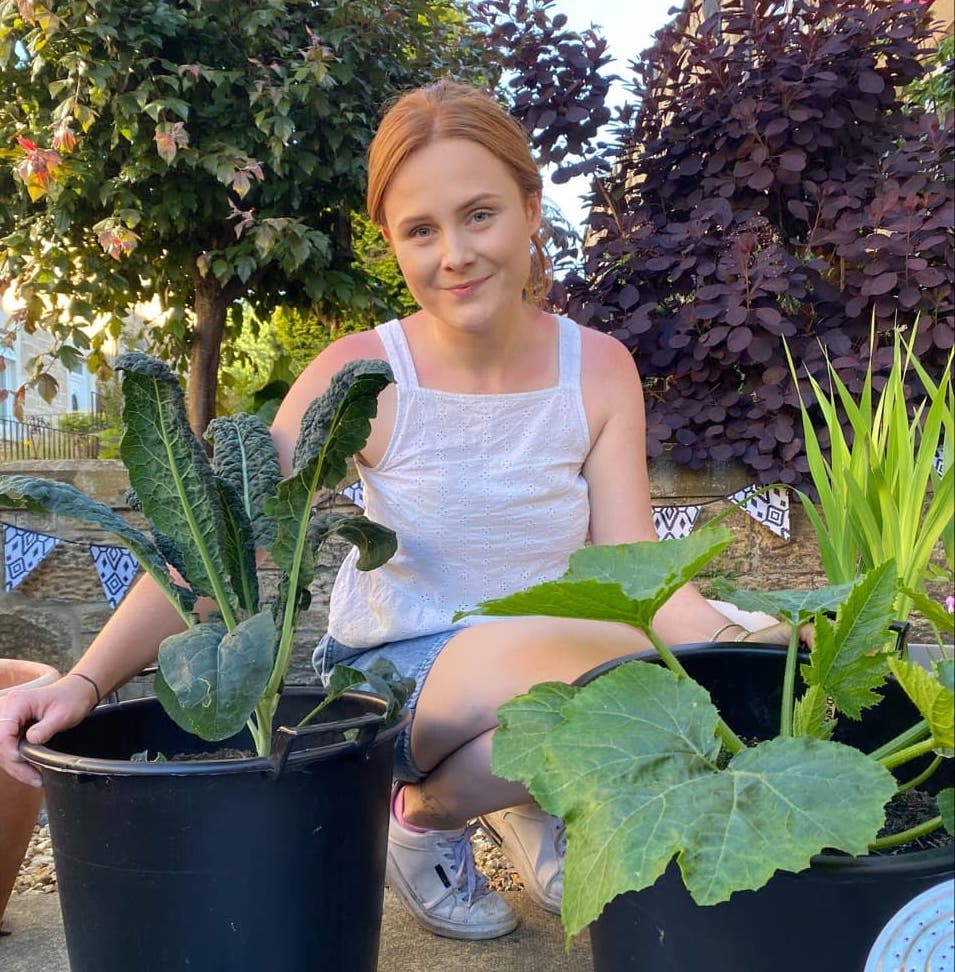
“Even when everything is planted up and you’re in the swing of things, it’s so important to just sit back and appreciate it for a minute or two.
“Taking on an allotment is a lot of work depending on how well looked after the plot has been, but it’s so rewarding and fun.
“I’d start small, clearing a few areas at a time and covering other areas you’re not working on with black plastic, cardboard or membrane – to help you manage the workload and keep weeds at bay until you’re ready to clear that area.
“Most importantly – it’s meant to be fun! So, enjoy the process and hopefully, you will harvest some veggies or some beautiful cut flowers as a bonus!”


